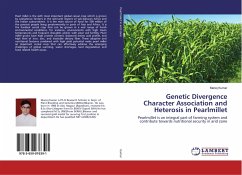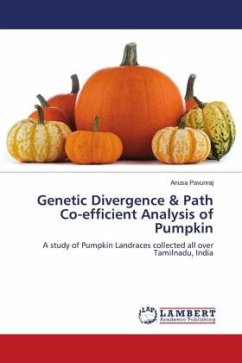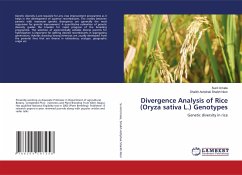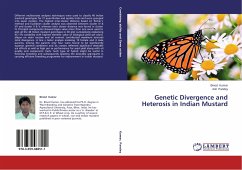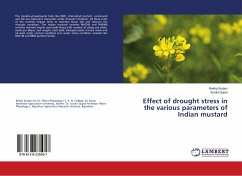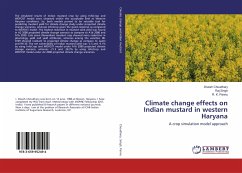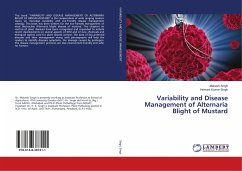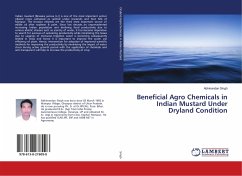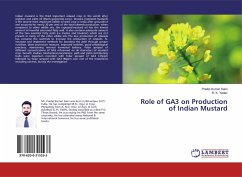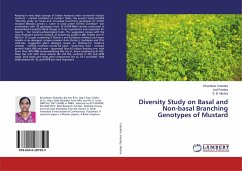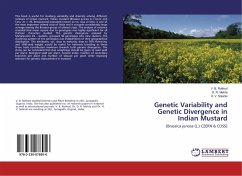
Genetic Variability and Genetic Divergence in Indian Mustard
[Brassica juncea (L.) CZERN & COSS]
Versandkostenfrei!
Versandfertig in 6-10 Tagen
24,99 €
inkl. MwSt.

PAYBACK Punkte
12 °P sammeln!
This book is useful for studying variability and diversity among different cultivars of Indian mustard. Indian mustard [Brassica juncea (L.) Czern and Coss, 2n = 36, Brassicaceae] popularly known as rai, raya or laha, is one of the most important oilseed crop of India and it occupies considerably large acreage among the Brassica group of oilseed crops. The analysis of variance revealed that mean square due to genotypes was highly significant for all thirteen characters studied. The genetic divergence assessed by Mahalanobis D2 - statistic, grouped 50 genotypes into nine clusters. The clusterin...
This book is useful for studying variability and diversity among different cultivars of Indian mustard. Indian mustard [Brassica juncea (L.) Czern and Coss, 2n = 36, Brassicaceae] popularly known as rai, raya or laha, is one of the most important oilseed crop of India and it occupies considerably large acreage among the Brassica group of oilseed crops. The analysis of variance revealed that mean square due to genotypes was highly significant for all thirteen characters studied. The genetic divergence assessed by Mahalanobis D2 - statistic, grouped 50 genotypes into nine clusters. The clustering pattern of the genotypes was independent of their geographical distribution. The attributes, viz., days to maturity, days to 50% flowering and 1000-seed weight would be useful for heterosis breeding as these three traits contributed maximum towards total genetic divergence. The study can be concluded that due weightage should be given to seed yield per plant, biological yield per plant, harvest index, number of secondary branches per plant and number of siliquae per plant while imposing selection for genetic improvement in mustard.



